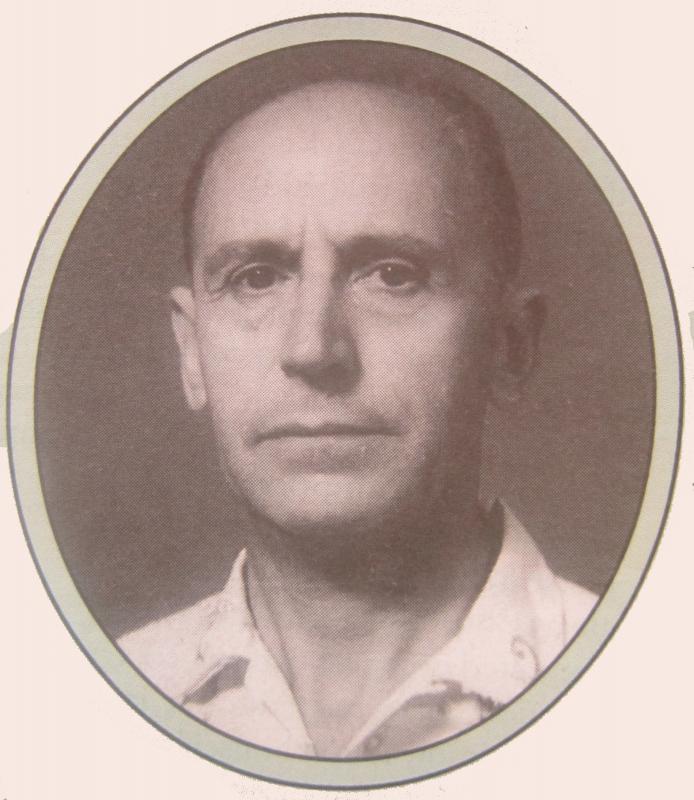Raising Cain In Negros
 By Fr. John Carroll, SJ
By Fr. John Carroll, SJ
With permission we reprint the article of Fr. John Carroll, SJ on the death of Fr. Hector Mauri, which appeared in the Philippine Daily Inquirer.
Hector’s work went from disaster to disaster. What is surprising is that he never gave up.
THE SUGAR PLANTERS and millers of Negros probably wept no tears on August 6 when Fr. Hector Mauri SJ, breathed his last. Although 87 years old, bedridden and scarcely able to communicate these past four years, the battles which he waged for the rights of the sugar workers have left scars to this day.
Luigi Sturzo and Mussolini
Hector was born on Christmas day in the year 1909 in Milan, Italy. His father was a newspaperman an a member of the Christian Democratic Party of the great Luigi Sturzo; he had the honor of having his paper closed by Benito Mussolini when the latter came to power in 1922, and of being the first of many whom the dictator forced into exile. One can surmise that the son came by his strong ideas and fighting temperament naturally.
Expelled by Communists
Hector entered the Jesuits a month before his 18thbirthday and did his early studies in Italy. In 1938, he was studying the Chinese language in Beijing, from 1943 to 1951 carrying on a parish apostolate at Hsushion. Hector’s years in China coincided with World War II, the Japanese occupation of China and the civil war leading to the Communist victory. After the takeover, the newly installed mayor of his town had orders to rouse the people and send Mauri away. The people sent the mayor away but eventually Hector was deported.
Federation of Free Farmers
After studying agricultural economics and cooperatives in the United States, Hector came to the Philippines in 1955. Attached to the Institute of Social Order, he helped the early organizing of the Federation of Free Farmers in Central Luzon. In 1956, he helped establish a Negros chapter, thus beginning a long career of “raising Cain in Negros.”
Negros and the sugar workers were to be Hectors concern and his Calvary for the next 24 years. Within a year after arrival there, the FFF was on a collision course with the planters initially over what was known as the ’swindle of the century’ allegedly perpetrated by Victorias Milling Company whereby the plantation workers were deprived of the share of the profits due them under the Sugar Act of 1952. Stung by injustice, hector began a four-year campaign to unionize the haciendas. Some planters replied with harassment, beatings and mass arrests. Some of the workers retaliated by settings fire to the tinder-dry cane, and some plantation were burned to the ground. Father Mauri was expelled from the palace of Bacolod Bishops Manuel Yap.
Disaster to Disaster
Given the situation, the power and the mentality of the planters, it is not surprising that Hector’s work went for disaster to disaster. What is surprising is that he never give up. By 1971, he was busy with Fr. Luis Jalandoni, still at the time in the priesthood and social action director of the diocese, in organizing the National Federation of Sugar Workers (NESW).
Historian Al McCoy notes that Father Mauri had a unique ability to convince capable men that his work should be theirs. After talking to Father Gore and Father Martin about likely NFSW leaders in their area, he took the bus to Kabankalan and walked in to city hall to talk with a bright young civil servant, Bobby Ortaliz, and told him: “Let’s go out for coffee. I want you to do something about your convictions.” Ortaliz rose through the ranks and became president of NFSW.
Hector never gave up and yet, in the end, what did he achieve? Under martial law the FFF supported Marcos while the NFSW became part of the National Democratic Front. Hector disowned them both. Luis Jalandoni is international spokesman for the National Federation of Sugar Workers and unswervingly loyal to Jose Maria Sison’s dream of revolution. The sugar industry is frequently on the verge of collapse; due in large part to the irresponsibility of some planters and miller, it cannot face the challenges of international competition. Some workers are getting two days work a week at 70 a day. Many of their children are in the hills killing each other, some with the army, other with one or other faction of the NPA.. Victorias is bankrupt due to alleged mismanagement and corruption. If the industry collapses, hundreds of thousands will lose their jobs and the armed rebellion will be strengthened.
Lesser men my point to Hector as a failure. But just as its is better to have loved and lost than never to have loved, so perhaps it is better to have tried and failed that never to have tried. Indeed, is that not what the Cross of Christ is all about?
Long Suffering
Hector had four-and-a-half long years of purification as a helpless invalid to put it all in context. And when he finally met his Lord, we can trust that he also heard the words: “Come, you whom my Father has blessed, take for your heritage the kingdom prepared for you since he foundation of the world. Fro I was hungry and you gave me food; I was thirsty and you gave me drink...” And if Hector asked: “Lord, what did I do for your brothers? Despite my best effort, they are still hungry and thirsty and homeless?” the answer surely was: “I tell you most solemnly, so long as you tried to do it for one of the least of these brothers of mine, you did it for me.
